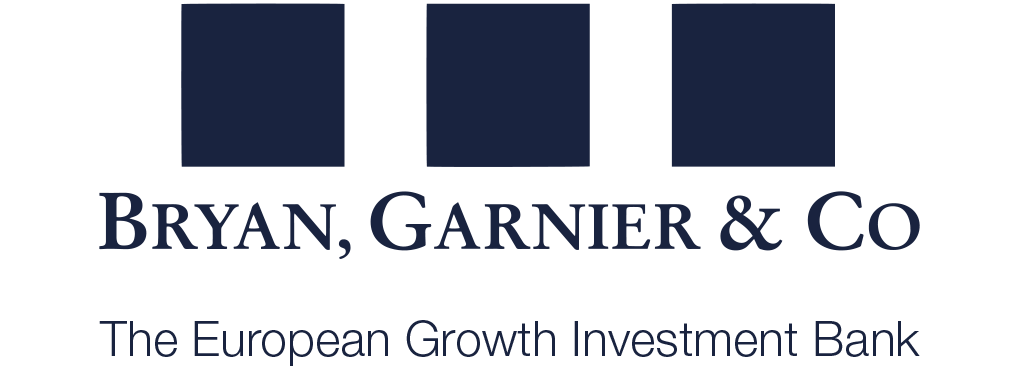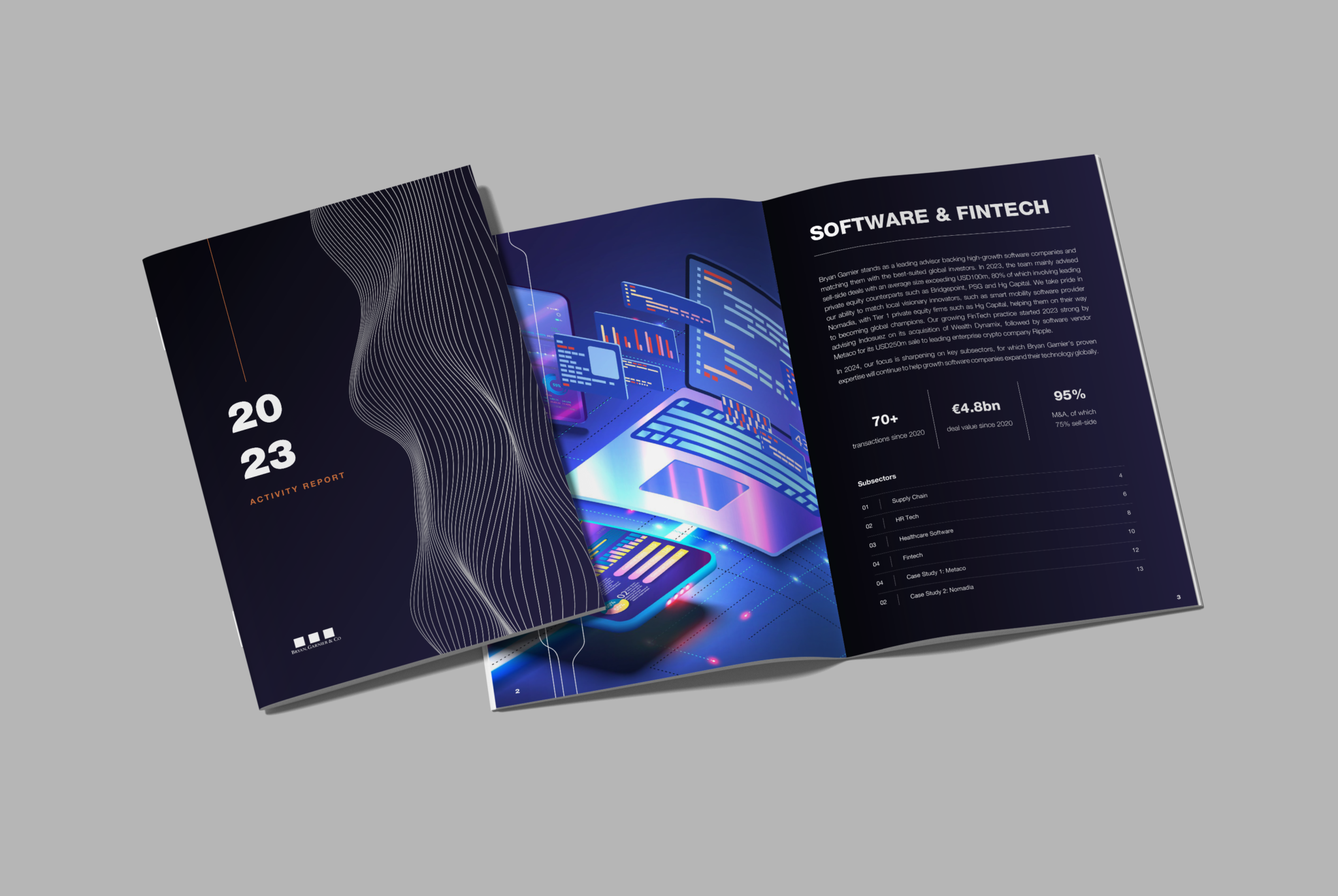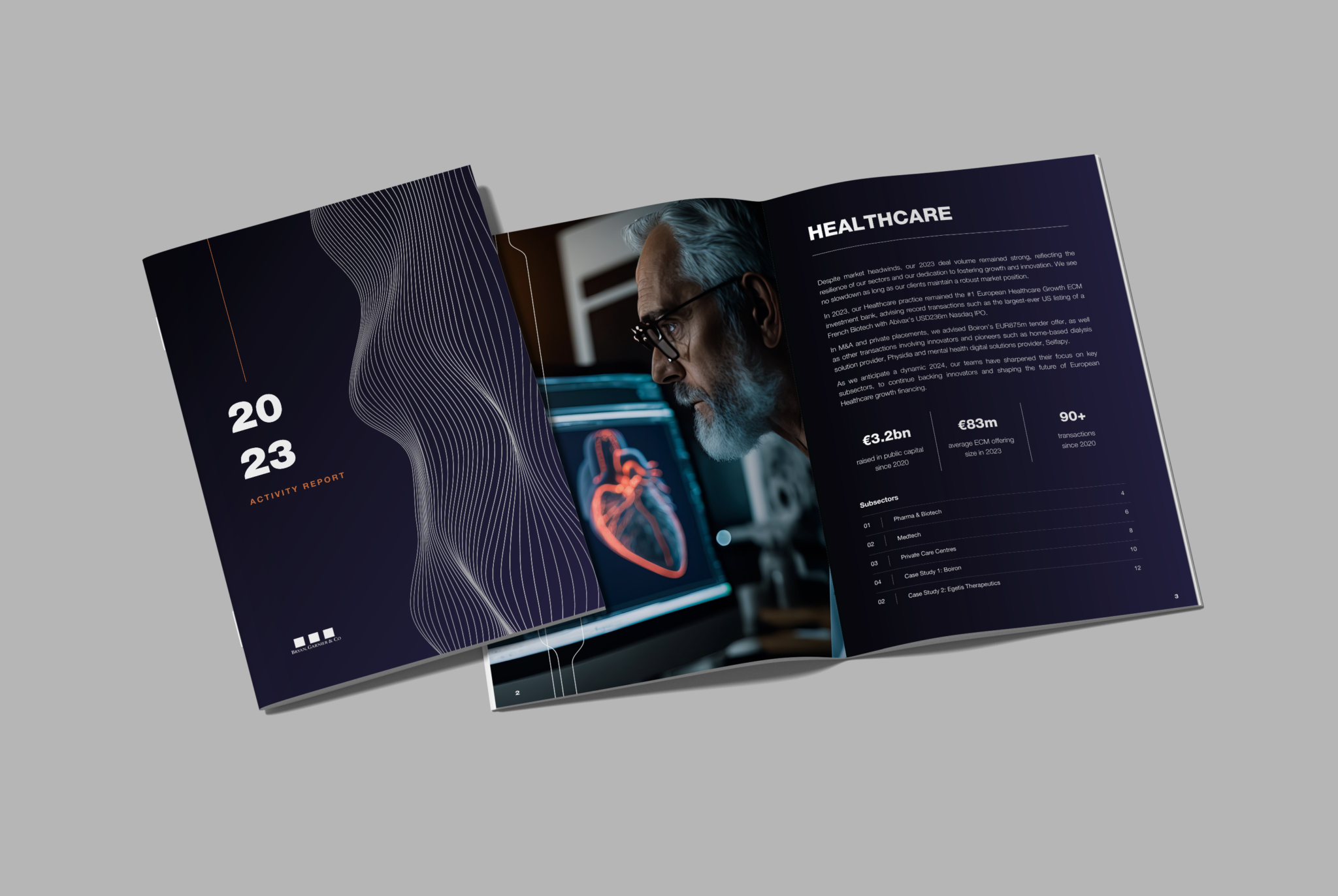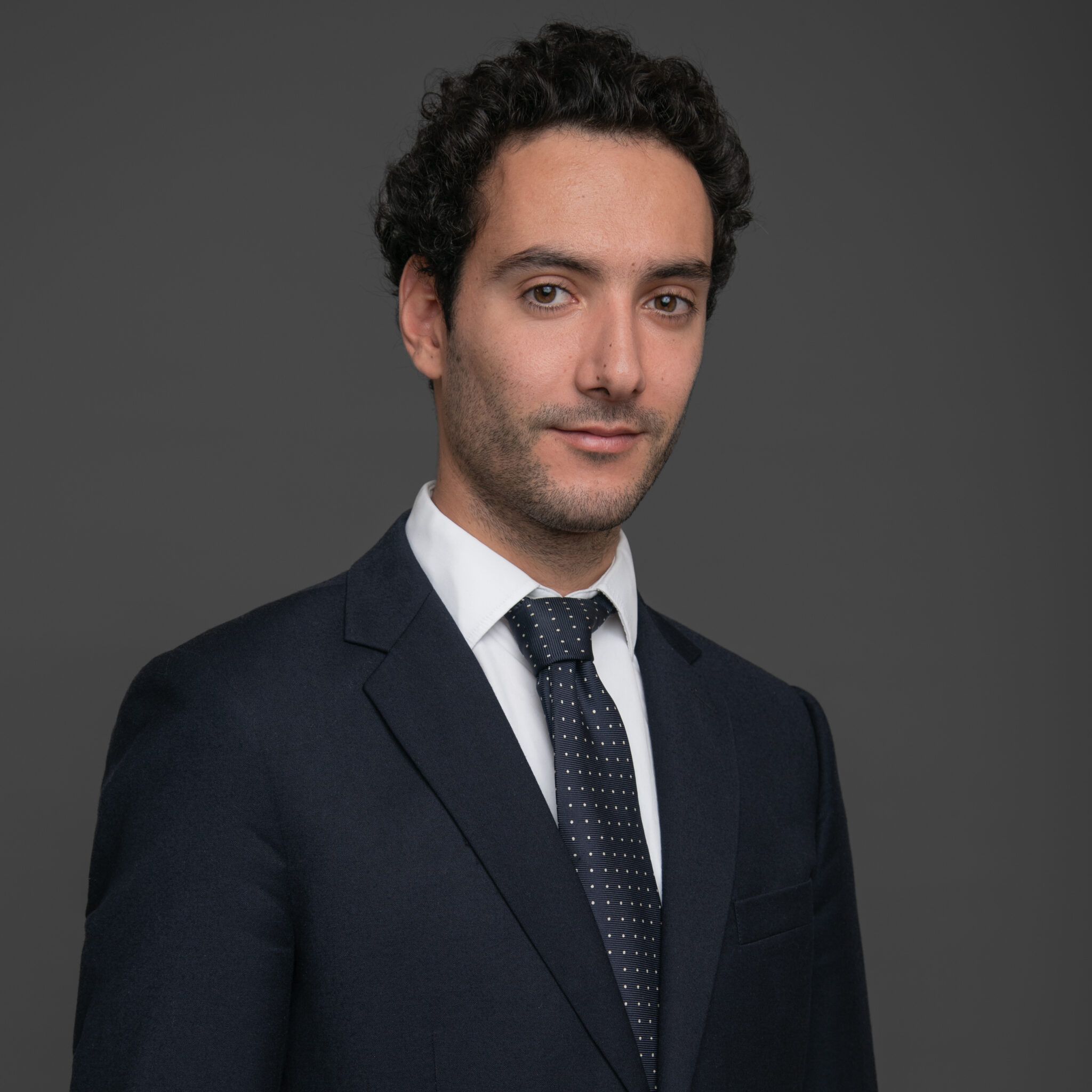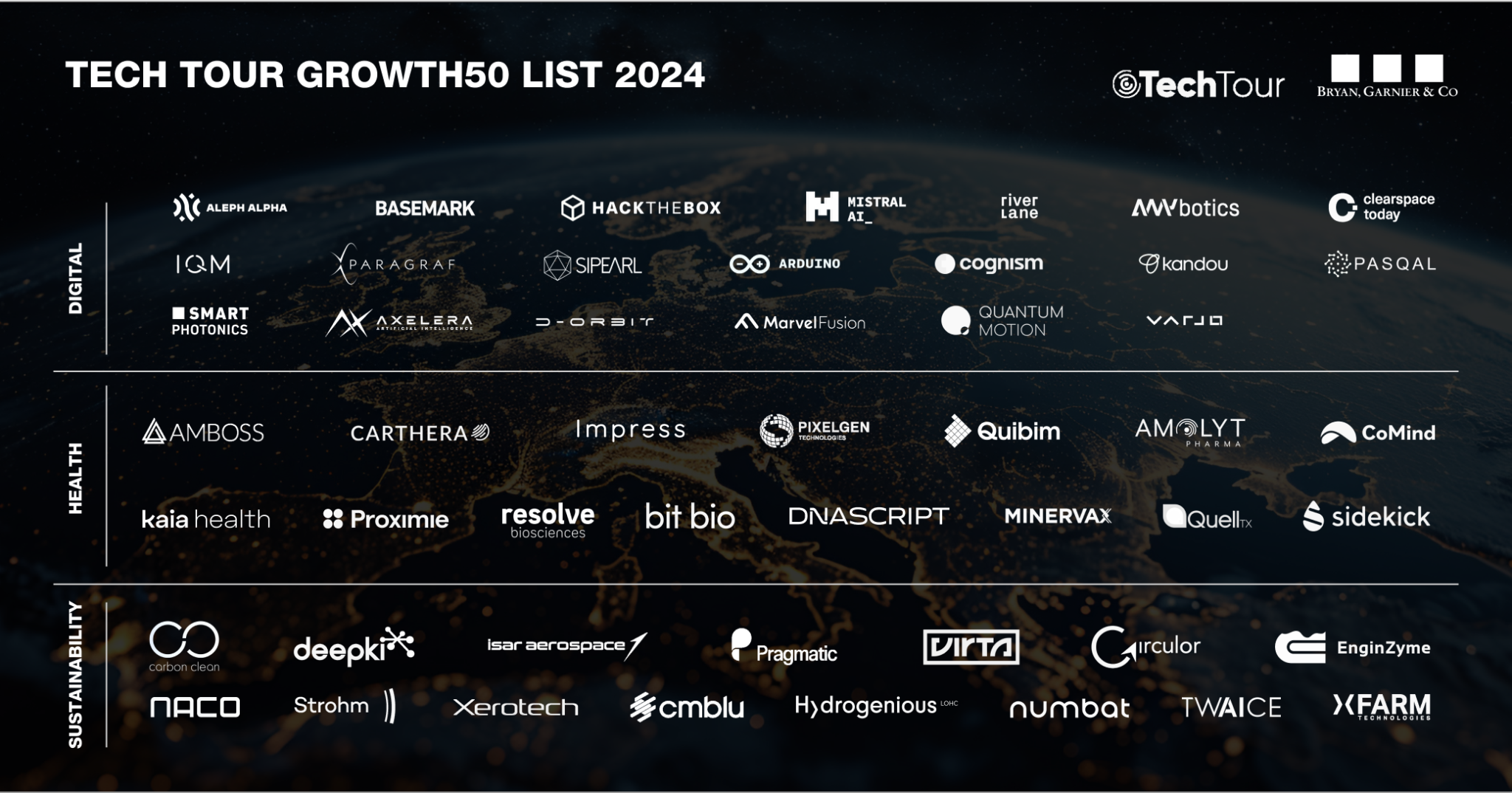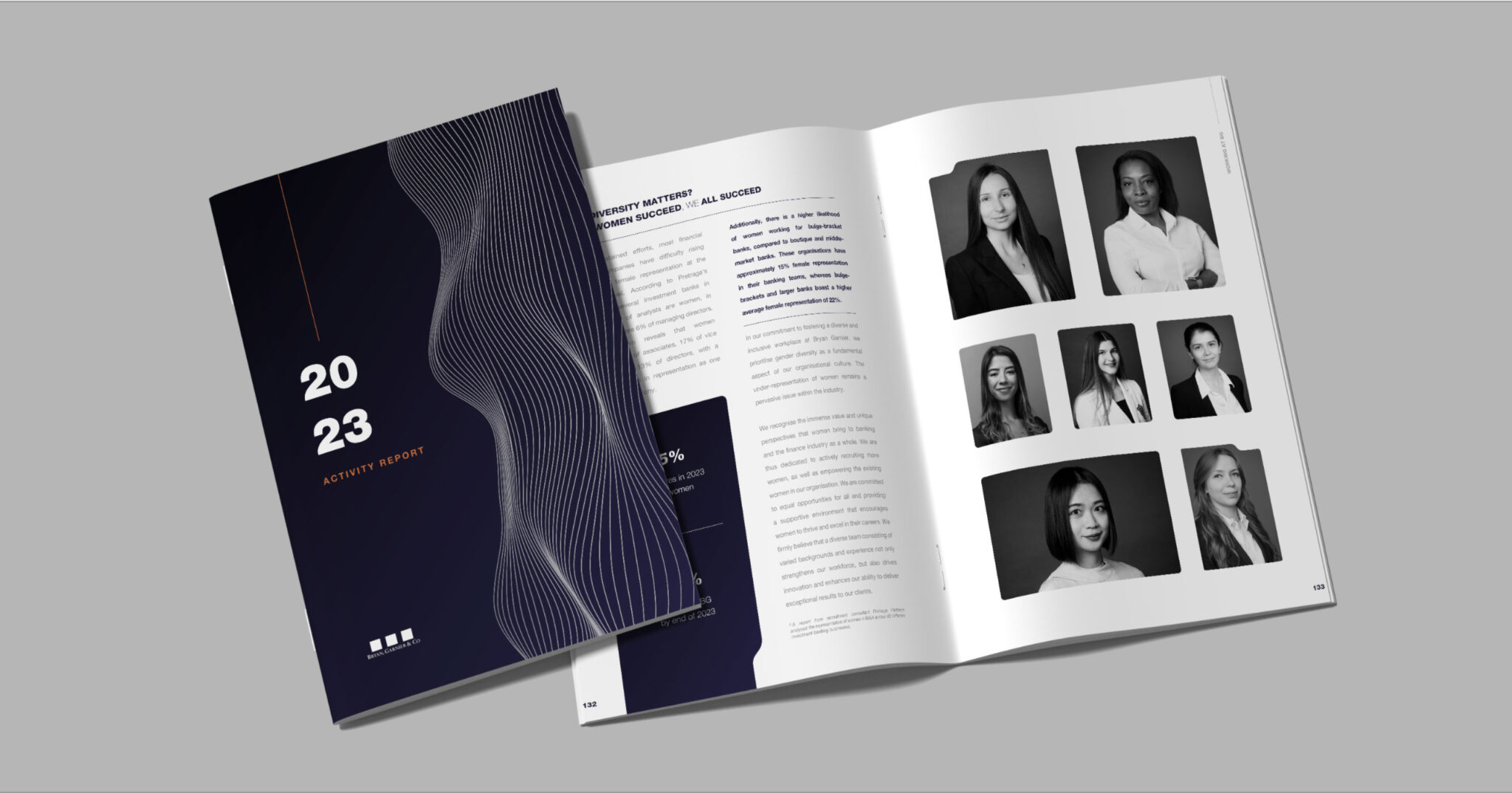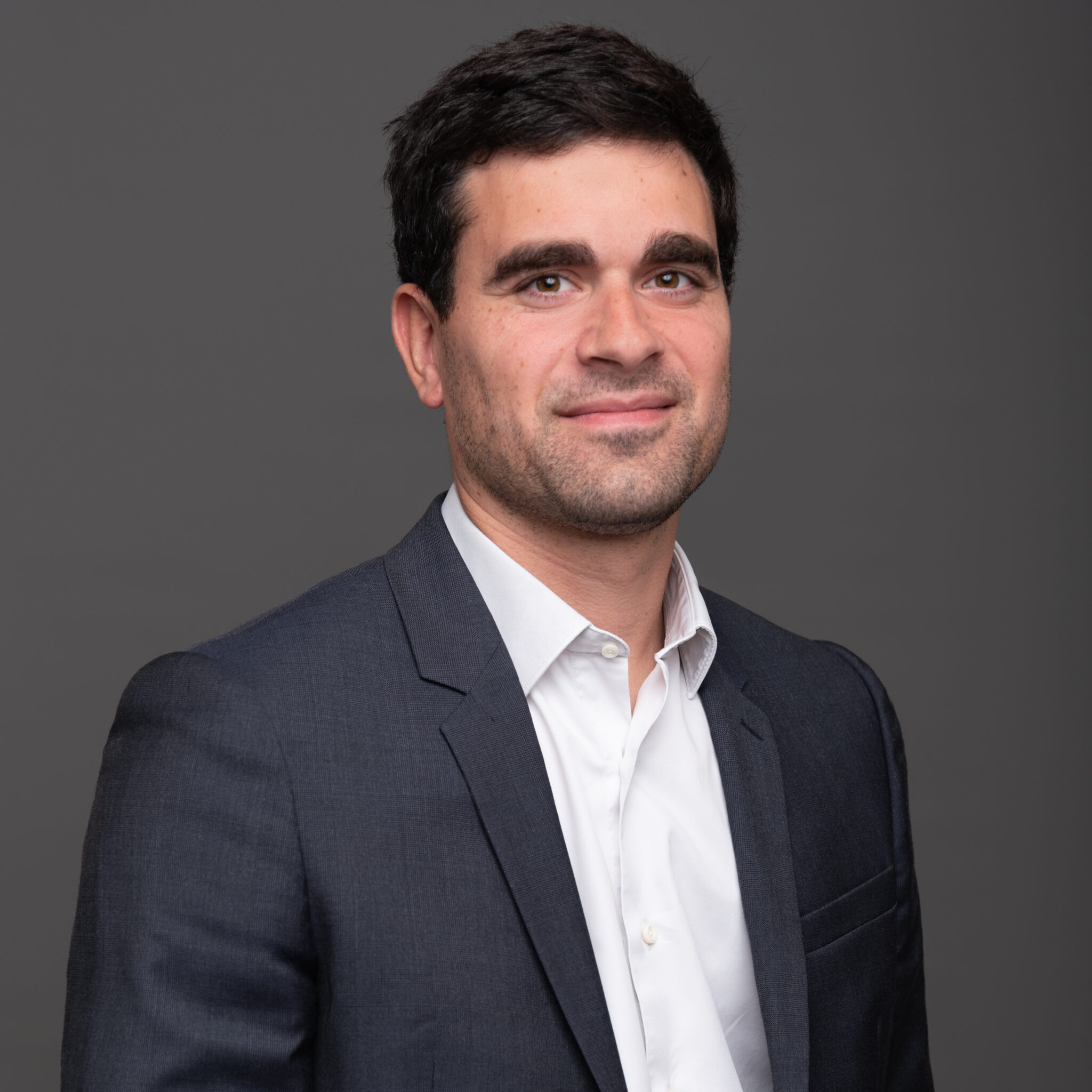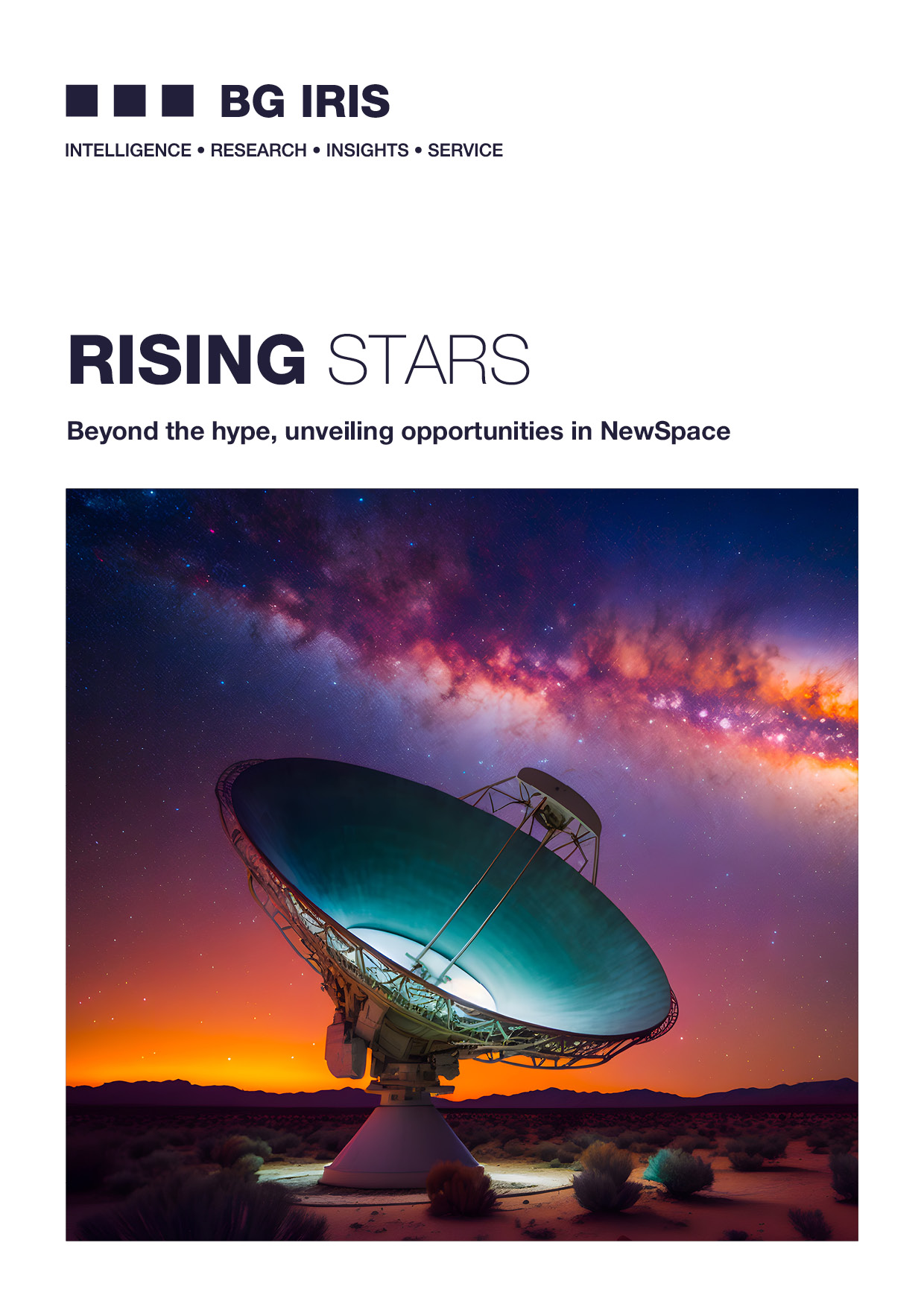2023 Software & FinTech Activity Report and 2024 Outlooks
In 2023, our Software & FinTech practice mainly advised sell-side deals with an average size exceeding USD100m, 80% of which involving leading private equity counterparts such as Bridgepoint, PSG and Hg Capital. Our growing FinTech practice started 2023 strong by advising Indosuez on its acquisition of Wealth Dynamix, followed by software vendor Metaco for its USD250m sale to leading enterprise crypto company Ripple.
As we look forward to an eventful 2024, our focus is sharpening on key subsectors. This effort is aimed at continuing to help growth software companies expand their technology globally.
Our Software & FinTech Activity Report provides a comprehensive market analysis of 2023 with key data, as well as projections for 2024.
Some topics we cover in this report include:
- Riding the supply chain wave
- HR Tech shines
- Healthcare software standing tall
- Strategic moves in FinTech
- Positive software and FinTech case studies
Get the report and stay ahead of the curve.
Contact us at communication@bryangarnier.com to know more and let us advise you through your growth journey or help you spot the best investment opportunities.
2023 Software & FinTech Activity Report and 2024 Outlooks
2023 Healthcare Activity Report and 2024 Outlooks
In 2023, our Healthcare practice maintained its position as the leading European Healthcare Growth ECM investment bank, advising landmark transactions such as the record-breaking USD236m Nasdaq IPO of French Biotech Abivax, the EUR875m tender offer by Boiron, and the SEK 462m Combined offering for Egetis Therapeutics on Nasdaq Stockholm.
As we look forward to an eventful 2024, our teams are directing their focus on specific subsectors. This effort is aimed at persistently supporting innovators and contributing to the evolution of European Healthcare growth financing.
Our Healthcare Activity Report provides a comprehensive market analysis of 2023 with key data, as well as projections for 2024.
Some topics we cover in this report include:
- The Pulse of Pharma and Biotech
- MedTech needs to buckle up
- Shifting Tides in CDMO and Private Care Centres
- Positive healthcare case studies
Get the report and stay ahead of the curve.
Contact us at communication@bryangarnier.com to know more and let us advise you through your growth journey or help you spot the best investment opportunities.
2023 Healthcare Activity Report and 2024 Outlooks
Paul's story: Vice President Software Investment Banking
We sat down with Paul, Vice President Software Investment Banking in our Paris office to discuss his five years at Bryan, Garnier & Co.
You’ve been at Bryan, Garnier & Co for the last five years. How have your roles and responsibilities evolved, and how has this contributed to your personal and professional growth?
Paul: As a junior at Bryan Garnier, I was already developing very interesting skills, both technical and soft. One of the key advantages of working here is the hands-on nature of the interaction with managers and clients. As I progressed in my career path going from an Associate and now as a Vice President, I have evolved into a more client-facing role. I am really representing the firm with our clients and leading the process from A to Z, as well as having the opportunity to manage teams.
What has been a memorable project that you’ve worked on during your time here, and how do you think that this has impacted the company and the community?
We recently advised Diapason and its shareholders on the disposal of the company to PSG, which is a European growth equity fund. I was involved in the process from pitch to closing and managed the customer’s relationship throughout the entire process, as well as the junior team, who did an excellent job in a tight timeframe. The shareholders had a positive outcome, both in terms of what they expected to get at closing and the company going forward with the new shareholders.
What are some of the fundamental skills or personal qualities that you need to deal with challenges that come up in your line of work?
The interesting part of being an investment banker is that you must combine both highly technical skills and soft skills, and all within a challenging time frame, which is a key component of investment banking. At the same time, we manage the client relationship and ensure that the relationship evolves in the right manner, and make sure that all stakeholders involved in the process are always satisfied. Throughout the process, you get the chance to learn about a new company, a new market environment, and new investors. It’s really a mix of a lot of things that make it so attractive, especially for dynamic people who really want to learn on an everyday basis and be challenged.
“It’s really a mix of a lot of things that make it so attractive, especially for dynamic people who really want to learn on an everyday basis and be challenged.”
What makes you stay at Bryan Garnier?
I would say the way we specialise on a specific sector – since it is my specialisation, I’m going to talk about software. I’ve always wanted to dive into that environment from the early stages of my career, and it’s one of the unique investment banks in Paris and in Europe where you really get the opportunity to focus on a specific sector and really learn about it 360 degrees. So this means being involved on landmark transactions while specialising in your specific area of expertise, which is highly gratifying.
What advice would you give to new joiners at Bryan Garnier?
Be bold. You have to understand that anything is possible when you join Bryan Garnier in terms of what you want to work on, who you want to work with, and how you want to be involved. Whether you want to focus on buyout, private placements or IPOs, you will be given that opportunity. It’s really a key part of the company culture, and it’s something that everyone should leverage on to really thrive in our environment.
“…anything is possible when you join Bryan Garnier in terms of what you want to work on, who you want to work with, and how you want to be involved”
Decoding the European Payments Sector Trends in 2024 with Paul Charpentier, BG IRIS Analyst at Bryan Garnier
In a recent BSMART episode, BG IRIS Analyst Paul Charpentier delved into the fluctuating valuations of key players on the European payments sector over the past two years and the challenges they face in 2024. The discussion highlighted the harsh reality check faced by prominent payment companies, signalling a shift from being perceived as Fintech “darlings” to commodities on the stock market.
The European payments sector faces multifaceted challenges requiring strategic adaptations to navigate through the evolving landscape. In the current context of shifting consumer behaviours, regulatory changes, and technological advancements, the sector’s resilience and ability to innovate will determine its trajectory in 2024 and beyond.
Key topics in the interview include:
- The evolving landscape and current trends, such as joint ventures between Payment Service Providers (PSPs) and banks
- Cybersecurity as a key focal point for payment players
- Speculative mergers in the payments sector
- Upcoming market trends and attractive investment perspectives
At Bryan Garnier, we help companies to navigate complex financial landscapes by providing a range of services, including mergers and acquisitions facilitation, capital raising such as IPOs and private placements, industry-specific expertise and strategic financial advisory services. Specializing in market insights, risk management, and equity research, Bryan Garnier assists clients in making informed decisions, optimizing their capital structures, and addressing industry-specific challenges.
Watch the full video with English subtitles here:
3min Insights - Wandercraft
bethsabee gresse
Welcome to “3-Minute Insights” a series showcasing innovative companies, products, and technologies shaping the future of key industries.
In this episode, we sat down with Matthieu Masselin, CEO and Co-Founder of Wandercraft, a pioneer in walking robotics. Wandercraft has developed the world’s first self-stabilizing exoskeleton designed to empower individuals with walking impairments, enabling them to stand and walk again.
Matthieu tells us about the transformative impact of AI on Wandercraft’s exoskeletons, taking their performance to a human-like level. The discussion spans market trends, current US regulations, and the anticipated timeline for exoskeletons entering broader settings.
Wandercraft’s mission is clear — allowing individuals who were previously in wheelchairs to regain their mobility and be able to move freely, both at home and in their communities, maintaining their balance, hands-free, and safely.
The company distinguishes itself through a unique blend of advanced technologies, including AI, algorithms, biomechanics, and clinical expertise.
Following FDA approval of Atalante for stroke rehabilitation in December 2022, Wandercraft is set to expand its presence in the US, establishing a new base in New York. Notably, Atalante received EU approval in 2019 and has treated over 650 patients across more than 5,000 sessions.
In December 2023, during a keynote presentation in New York, Wandercraft unveiled its latest prototype of exoskeletons designed for home settings, elevating usability and autonomy to an unparalleled level. In the same month came the introduction of the French Ministry of Health directive DGOS/R4/2023/196, which states that all French departments are eligible for a minimum of two exoskeletons each for the rehabilitation of patients with neurological disorders, a number which could be adjusted to take into account specific regional needs and the allocation of healthcare resources.
In 2021, Bryan Garnier & Co played a pivotal role as the Sole Financial Advisor in Wandercraft’s $45 million fundraising. The collaboration is hailed as a positive experience, with Bryan Garnier supporting Wandercraft’s long-term growth, mobilising our teams in Europe and the US.
Bryan Garnier remains committed to supporting pioneers striving for a better future. Join us in this episode as we explore the exciting world of robotics with Matthieu Masselin, CEO of Wandercraft.
Get in touch
If you are operating in high-growth sectors focusing on solving sustainability challenges, our team will provide you with tailored advice rooted in deep sector knowledge.
Our transactions
Bryan, Garnier & Co offers a complete range of investment banking services, from growth financing to mergers and acquisitions.
Tech Tour announces 2024 edition of the Tech Tour Growth50 List
Bryan Garnier is pleased to partner with Tech Tour at the 18th edition of the Tech Tour Growth50 Europe Summit in Paris on 8 February. The event will showcase 50 of Europe’s most promising companies with the biggest growth potential in the digital, health, and sustainability sectors.
Tech Tour has announced the 2024 edition of the Tech Tour Growth50 List.
The Growth50 Data reveals positive trends and interest insights for the European tech entrepreneurship and investment scene.
Tech Tour Growth50 Europe 2024 aims to foster collaboration of Europe’s top tech firms in digital, health and sustainability to long-term funding, success and impact. The summit promises a day filled with insights, inspiration, networking and fun.
Find out more about the event on the Tech Tour website.
Select companies from the list

Aleph Alpha is an AI research and application company that researches, develops and operationalises large-scale AI models for language, image data and strategy, thereby contributing to securing Europe’s digital sovereignty.

Mistral AI is a platform that assembles team to develop the generative AI models. It creates and offers innovations for the artificial intelligence industry.
Activity Report 2023
The geopolitical and financial market turbulence seen in 2023 led to instability in the banking system, most dramatically with the collapse of Silicon Valley Bank in February and Credit Suisse in March. These headwinds triggered a 20-40% reduction in investment banking revenues among the banking peer group. Throughout our 27-year history, the hallmark of Bryan Garnier has been our ability to adapt to changing market conditions. In that respect, 2023 was no exception.
Bryan Garnier has emerged as a resilient force, achieving significant milestones and advising record setting transactions in the Healthcare, Software & Fintech, Energy Transition & Sustainability, Industrial Tech and NextGen Consumer sectors. In addition to seeing strength across our M&A and growth financing in both private and public markets, we were also delighted with the success of our Debt Capital Advisory business.
Thanks to our focus on the Healthcare and Technology related sectors, a significant cohort of our clients have a positive Environmental Social & Governance (ESG) impact. Protecting the planet is an important part of our mission, and we attach great importance to our role of providing creative capital-raising solutions to our client base in energy transition and sustainability.
Our Activity Report provides a comprehensive market analysis of 2023 with key data, as well as outlooks for 2024.
Some topics we cover in this report include:
- MedTech needs to buckle up: Sound strategic advice from sector experts is particularly crucial in the MedTech sector in current market conditions.
- HR Tech shines: A recent Gallup report on the State of the Global Workplace reveals that 59% of the world’s employees are discreetly disengaging, resulting in an annual cost of approximately USD8.8tn to the global economy. This underscores the imperative for talent-focused solutions, which will undoubtedly continue to attract venture capital and private equity funding.
- Bio and Alternative Fuels on the rise: This sector is undergoing a transformative phase, shifting from fossil fuels to electrification and renewable options.
- The inevitable surge in cybersecurity: Companies recognise the imperative of maintaining robust cybersecurity measures to avoid the severe consequences of attacks, including ransoms, litigations, fines, opportunity costs and lasting damage to reputation.
- A dynamic year for Generative AI: Generative AI triggered an industrial revolution in content creation, personalisation and recommendations. Furthermore, an impressive USD38bn has been invested in AI start-ups over the past 12 months alone.
- A surge in demand for better-for-you products: The size of the global Health and Wellness F&B market is approximately USD1tn in 2023 and is expected to grow to around USD1.6tn by 2028.
Get the report and stay ahead of the curve.
Contact us at communication@bryangarnier.com to know more and let us advise you through your growth journey or help you spot the best investment opportunities.
Get the Activity Report 2023
The Plastic Revival
PARIS | January 11th, 2024 – BG IRIS, Bryan Garnier’s research platform, is pleased to release the “The Plastic Revival”, a comprehensive analysis of the sector as well as underlying financing and M&A market activities.
Plastic was fantastic, but now it has become a major burden as most plastics currently in use are produced from non-renewable resources such as crude oil and natural gas. The annual global production of plastics amounted to 400 million tons in 2022 and is set to reach 750 million tons by 2050, yet only 9% of plastic waste is recycled globally.
For decades, efforts to collect and recycle plastic waste have been economically challenging. However, broad coalitions of players across the plastics value chain are taking actions to address this transgenerational issue. Real growth for sustainable plastics is just about to start and should merely accentuate over the coming years.
Within this white paper, we provide a comprehensive guide to the plastic revolution, unveil emerging regulations, and explore advanced recycling technologies. Our analysis uncovers challenges and expert opinions that will shape the industry’s future.
To dive deep into this topic and discover more about plastic recycling as a transformative industry of the future, download the white paper.
Get the white paper
Please complete the form below to receive the report.
L’AGEFI interview with Antoine Lebourgeois, BG IRIS Analyst at Bryan Garnier
Following an insightful interview with BG IRIS Analyst Antoine Lebourgeois, Capucine Cousin penned an article in L’AGEFI shedding light on Elon Musk’s desire to connect smartphones directly to his Starlink network and the possible implications. In this summary, we capture key points from the interview and provide a link to the full article in French.
Elon Musk wants to revolutionize the telecom sector by connecting smartphones directly to his Starlink network. On Wednesday 3rd January 2024, a SpaceX Falcon rocket delivered a new batch of high-speed satellites.
Is this a threat to traditional telecom operators? Not really.
“Satellite operators like Starlink need access to frequency bands to launch their satellites. This means partnering with telecom operators to access them”, notes BG IRIS Analyst Antoine Lebourgeois. Starlink can’t bypass the telcos – it must be able to use their low-bandwidth frequencies and must get the green light from local telecom regulators.
“For the time being, it’s just a basic service, a sort of emergency service for sending SMS in areas with poor coverage”, continues Antoine Lebourgeois.
To dive deep into this topic and discover the future of the space industry, request the white paper.
The Evolving Landscape of Agency M&A by Sebastian Schirl
In the 100th episode of #WhatsNextAgencies, Kim Alexandra Notz engages in an insightful discussion with Sebastian Schirl, Managing Director at Bryan, Garnier & Co’s Business & Tech-Enabled Practice.
Specializing in the Digital Media industry, Sebastian shares market perspectives and current dynamics that shape the industry’s trajectory.
Providing a clear assessment proves challenging amid current geopolitical and inflationary context, as well as the heightened volatility that is steering a shift towards private placements during adverse market conditions. However, two transformative shifts demand attention: AI and profitability.
Key industry trends: AI, profitability and measurable success
The escalating impact of artificial intelligence (AI) will lead to a paradigm shift, set to fundamentally alter the marketing industry. Before October 2022 and the emergence of OpenAI, the world was vibrant, and everything seemed to be progressing smoothly. Sebastian highlights impressive figures: currently, every second a content asset is generated by AI, and by next year, three out of four content assets will be AI-produced. This transformative shift poses challenges for those engaged in contextual marketing, especially concerning text copy, and presents opportunities for those who focus on leadership in creativity, an area where AI has limitations. The imminent influence of AI on the industry is expected to rearrange the landscape.
Another prominent trend that Sebastian addresses is the surging demand for agencies to exhibit measurability, focusing on performance marketing and data-driven approaches. A paradigmatic shift is evident in the evaluation of agency performance, with profitability taking precedence over conventional growth metrics. Investors, encompassing both strategic and financial realms, now prioritize sustained profitability when contemplating acquisitions.
Sebastian shares insights on actively increasing company value by focusing on transparency, data, and performance. Irrespective of sales intentions, understanding trends, potentials, and growth areas is crucial for agencies to strategically position themselves for the future.
Agencies must become more measurable, emphasizing data and performance. Performance marketing, data-driven approaches, and leveraging First Party Data are becoming crucial for success. Agencies that adapt to these trends and demonstrate profitability will navigate the challenges effectively.
Profitability has become a central focus for investors, with a shift away from solely prioritizing rapid growth. Stable and profitable companies in the digital consultancy and performance sectors are especially sought after. The ability to showcase profitability has become essential for a favorable valuation.
M&A dynamics
The M&A landscape is influenced by these factors, with a trend towards stability and profitability. While uncertainties persist, successful companies can find opportunities, and we anticipate an increase in transaction volume in the coming year.
Investors, both strategic and financial, play a crucial role. In the current climate, stable and middle-market technology companies are more sought after, while large agency holdings are exhibiting more caution in acquisitions. Challengers, often from the technology sector, are becoming more active in the M&A space, driving deals with a focus on technology as a core service element.
As the industry adapts to changing dynamics, maintaining agility is crucial for entrepreneurs, investors, and industry professionals alike. The journey from agency ownership to acquisition is nuanced, requiring an adept understanding of cultural shifts, challenges, and the intricacies of valuation metrics. In this evolving agency landscape, staying informed, adaptable, and well-connected remains paramount for sustained success.
For marketing agencies navigating the evolving landscape, key considerations include embracing data-driven marketing strategies and integrating technology into core services. In the M&A realm, agencies, particularly challengers, are subject to private equity involvement, with strategic and financial buyers approaching deals differently.
Relationship-driven approaches and a focus on EBIT (Earnings Before Interest and Taxes) valuation, often normalized for private, owner-led agencies, are crucial in initiating successful discussions. Factors influencing valuation multiples range from agency performance to service diversification, impacting negotiations with both strategic and financial buyers. Motivations for selling, including a generational shift and business challenges, contribute to the dynamics of agency sales. Looking ahead, agencies must align with market demands, addressing growth challenges and optimizing profitability before considering M&A. Post-sale success hinges on strategic planning, integration execution, and adapting to new corporate structures within larger groups. As the agency landscape continues to evolve, understanding these factors is essential for agencies planning for future growth, M&A, and long-term viability within the industry.
How to navigate the M&A landscape
Embarking on Mergers and Acquisitions (M&A) requires a meticulous approach from marketing agencies. First and foremost, agencies should articulate clear objectives, whether seeking growth, diversification, or an exit strategy. Conducting a comprehensive assessment of the agency’s value, including a SWOT analysis, is crucial. Building strong industry relationships through networking and staying abreast of market trends enhances visibility. Financial health and legal compliance should be prioritized, while showcasing the team’s expertise is essential. Creating a well-organized data room and engaging experienced advisors streamline the process. Thoughtful negotiation, transparent communication, and detailed post-acquisition integration plans contribute to a successful M&A journey.
_________
About the author
Sebastian Schirl is the managing director of Business & Tech-enabled Services at Bryan Garnier & Co
Date published: Dec 12, 2023
For more information, please contact Sebastian Schirl.
